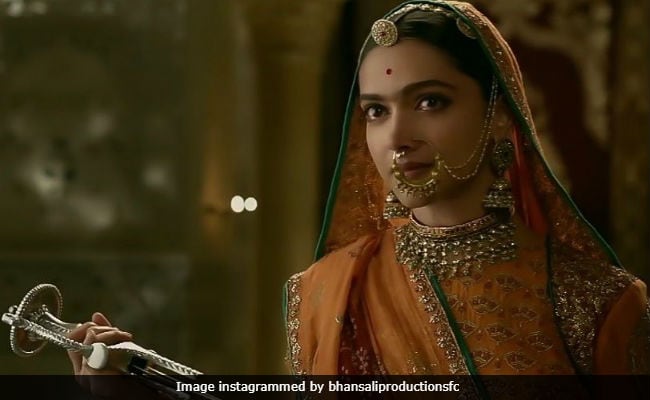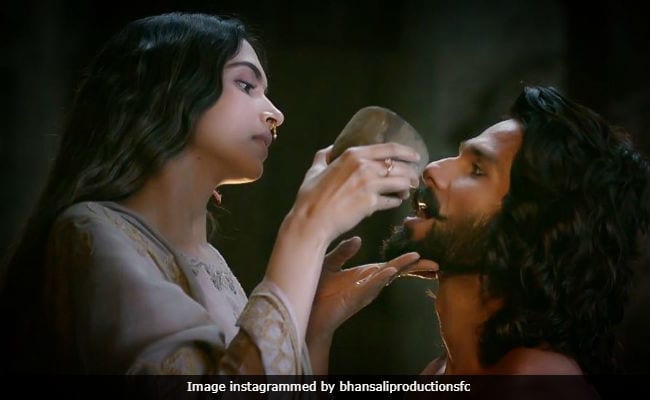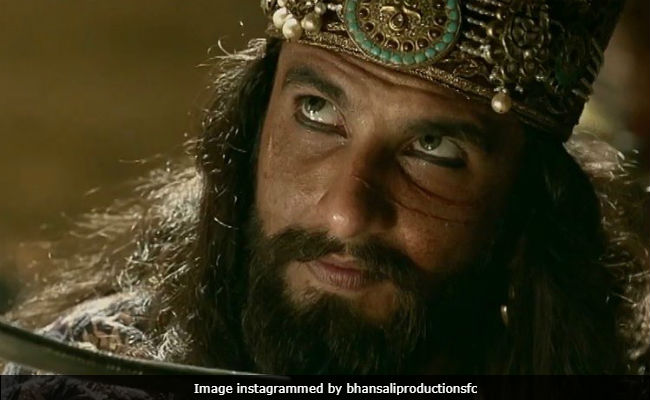
Cast: Deepika Padukone, Shahid Kapoor, Ranveer Singh, Aditi Rao Hydari, Jim Sarbh
Director: Sanjay Leela Bhansali
Rating: 1.5 Stars (Out of 5)
Much ado about much ado.
The creation and eventual release of Padmaavat may well make for a more dramatic and impassioned tale than the film itself. The offscreen narrative is complete with death threats, bounties on noses, altered spelling, digitally clothed bellies, and, as I've written about before, politically shielded psychopaths encouraged by the media. What spectacle dare compete with a country gone bonkers?
Not that this film doesn't try. Director Sanjay Leela Bhansali, a man well versed with excess, lays it on thick to the point of being tiresome. This is an all-out assault on the senses, a circuitous take on an old legend that is now being flogged to breaking point. Based rather loosely on the epic poem of the same name by Malik Muhammad Jayasi, here we have a king and his lovely queen, interrupted by a barbarian who, on hearing that the queen is pretty, lays siege to their city. As you may probably be aware, all of this ends in a climax that, as the kids now say, is lit.

Padmaavat Movie Review: A still from the film. (Image courtesy: bhansaliproductionsfc)
Alas, Bhansali takes an unbearable length of time to spark the flame. Things go on and on and on, with characters it is impossible to care about. They may appear attractive from time to time, certainly, but these protagonists are inconsistent, infuriating and test the patience. There is only that much of a damn that can be given about window dressing, and about people who dress like windows. (I'd accuse the film of navel-gazing, except visible midriffs have since been cloaked by our censor board.) The word 'Nayaab' - meaning 'invaluable' - is used several times over in the film, for different objects: a priceless gem, a priceless ostrich, a priceless princess. As a result, nothing seems to hold true value. This is an epic bore.
The film's cardboard nature is exemplified by Shahid Kapoor, who plays Rajput king Ratan Singh, meant to be the unyielding moral core of the story. Kapoor struts around with that particular stiffness of a man sucking his stomach in, with his mouth forever in a soured pucker, lips seemingly sucking at invisible coconuts through imaginary straws. A man who believes pigheadedly in archaic codes of honour, this character holds no appeal.
Yet he lands a Sinhalese warrior queen. Padmavati, played by Deepika Padukone, doesn't need cupid to shoot down her lover. She does this herself, and then chooses to confront him, hostile and coquettish in turns. For some reason, this striking woman takes a fancy to the insipid Ratan Singh, but so be it. She knows her mind. She also steps up when her kingdom needs someone at the helm. This striking woman, in fact, shows us strength and fortitude throughout this slow-moving film, right up until the end when she makes a demand of her king: she asks for his permission to kill herself.

Padmaavat Movie Review: A still from the film. (Image courtesy: bhansaliproductionsfc)
The reason she must do this is because she fears contact with Alauddin Khilji, the wily king from the history books who is depicted here as a merciless savage. In the name of extreme villainy, Ranveer Singh plays him without consistency or caution: he giggles, he grunts, he breaks into Amitabh Bachchan's dastardly laugh from Aks, he wrestles with men not allowed to beat him, and he dances like a goblin. He wins at chess and also, at one point, snuffs out a man's life using his formidable armpit. It is a loud and overblown performance, only occasionally rescued by Singh's natural screen presence. This Khilji amuses - primarily because he jolts the film out of its stupor - but he makes little sense. He is The Great Unwashed. He stinks but he knows things.

Padmaavat Movie Review: A still from the film. (Image courtesy: bhansaliproductionsfc )
What I would like to know is why Padmaavat isn't a better looking film. Bhansali is all about scale and there is indeed pomp to the proceedings, but this time the sets always look like sets - sometimes with the 'carvings' on pillars in the background visibly looking drawn on. Cinematographer Sudeep Chatterjee doesn't get to show off his work, dulled and hindered by an entirely unnecessary 3D conversion, and unlike Bhansali's other films, there is no truly memorable imagery, save for the final sequence. It would, however, be unfair to credit the imperiousness of Ms Padukone's eyes to the film's production design, and the lesser said about the slow-motion glorification of self-immolation the better.
Still, there are some lovely touches in PadmaavatBajirao Mastani
The problem lies not in Padmaavat
